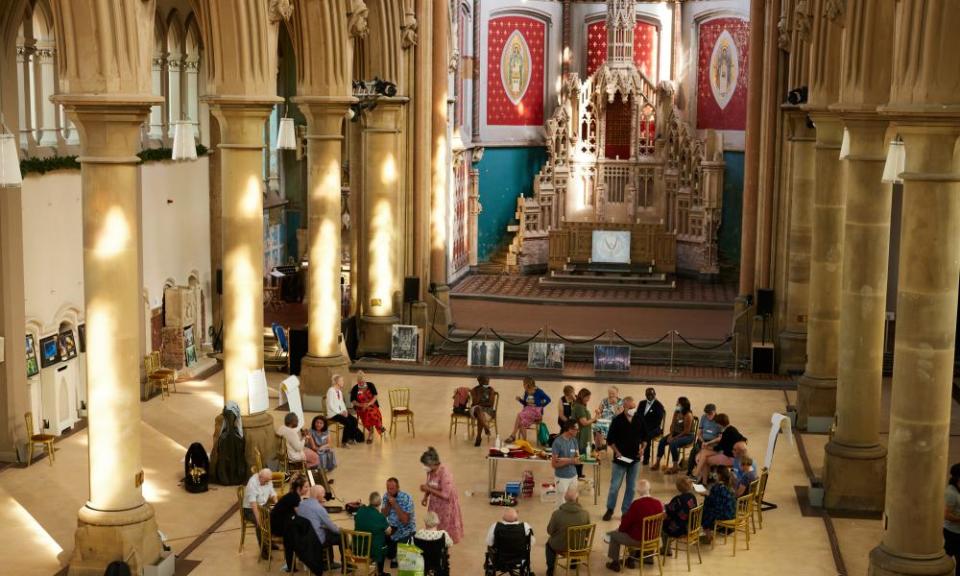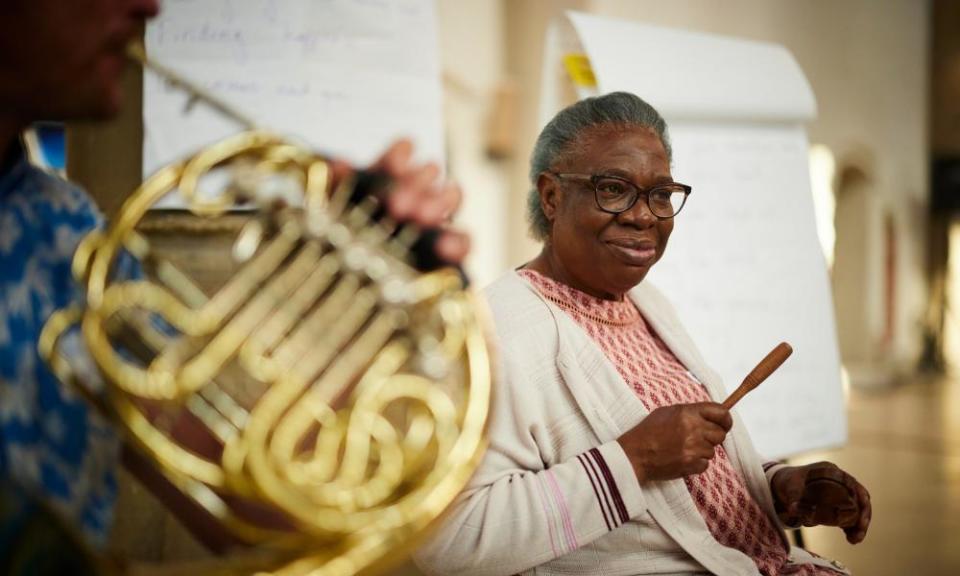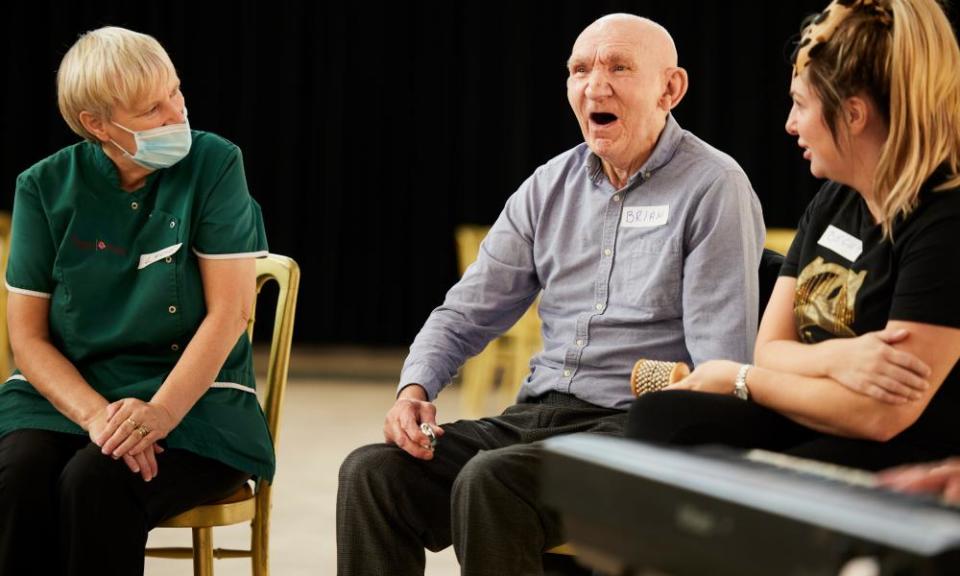‘Spiritual medicine’: orchestra helps people with dementia write music

On paper, it may seem like an odd pairing: the Manchester Camerata, one of Europe’s most renowned orchestras, and Gorton, the tough Manchester suburb where Shameless was filmed.
Though a £100m regeneration project has bulldozed the boarded-up shops and grotty maisonettes that formed the backdrop to the chaotic Channel 4 show, the area is still among England’s poorest. Almost 29% of Gortonians claim unemployment benefit, twice the English average. A disproportionate number of residents are in poor health and life expectancy is about five years shorter than the England average.
Gorton’s older inhabitants will be among the first to benefit from the Camerata’s decision to abandon its central Manchester home. Over the past year it has moved into a spectacular Victorian monastery in Gorton, which looms incongruously over a redbrick council estate, the pavement outside crunchy with broken glass.

The orchestra hopes the move will broaden its audience and bring what the musical director, Gábor Takács-Nagy, calls “the spiritual medicine of music” to an area of great disadvantage.
Among them is Ted Hennessey, who has spent all of his 82 years in Gorton. He worked as an engineer at Gorton’s locomotive works, got married at Gorton monastery and went to the school next door.
Now in a wheelchair and living alone after his wife died in 2018, Hennessey’s mind is increasingly clouded by dementia. But as soon as his daughter wheels him into the monastery, the clouds clear. He smiles beneath his Manchester City face mask, remembering his wedding, in the year England won the World Cup.
Fifty-five years later, the 82-year-old has been back in the monastery for something that at first sounds unlikely: a songwriting session for people living with dementia. It went so well that his daughter, Pauline Rawlins, now calls him “Gorton’s McCartney”. She is delighted the Camerata has come to Gorton: “Usually we don’t get things like this here.”
Asked to brainstorm the theme of autumn, her dad mused that “it comes and goes” – a line the Camerata’s musicians quickly improvised into a rather melancholic song, with percussion provided by the other participants and their carers, as well as music therapists.

The musicians find the unpredictability a thrill, says Ryan Breen, a tuba player. “It’s really, really exciting. Yeah, you can go and do a prom, which is still exciting, but in a more fixed way.”
Many of those taking part can no longer live independently and are losing brain function fast. But the weekly music cafe, funded by Music For Dementia’s Paul and Nick Harvey Fund, seems to wake up their minds and sometimes their feet: a dapper man called John, known in his care home as “the best dressed man in Manchester”, waltzes his carer around the monastery, glowing in the stained-glass tinted light. His neighbour, the perma-grinning Brian, picks up the beat to offer a pitch-perfect rendition of his favourite song, Young Girl by Gary Puckett & The Union Gap.
For Ken Simpson, a youthful 79-year-old, it is a joy to dance with his wife, Mil, now 85, who has had dementia for five years. Eighteen months of pandemic-induced isolation has been tough, says Ken, who believes it may have accelerated Mil’s concentration problems.

The Camerata is determined to deploy its world-class musicians in areas where their craft can “make the maximum impact,” says Bob Riley, the orchestra’s chief executive. Their work with dementia patients and other outreach initiatives aren’t “fluffy art projects” but evidence-based programmes designed to work with partners in health, housing and beyond to effect “societal change”, he says. There will be regular concerts, too: all free or heavily discounted for Gorton residents.
“We’ve displaced ourselves. We’ve put ourselves outside of our comfort zone,” said Riley. He hopes the monastery, a Grade II* listed building bought for £1 in 1996 by volunteers who spent the next 11 years bringing it back from the brink of destruction, will prove the perfect home.

Once featured on the World Monuments Fund watch list of 100 most endangered sites in the world, alongside the Taj Mahal, Pompeii and the Valley of the Kings in Egypt, in recent years the monastery has largely been used for weddings and conferences.
But Elaine and Paul Griffiths, who led the renovation effort and now act as Gorton monastery’s chief executive and chair, want the building to be used and treasured locally “as the community asset the Franciscan monks built in 1872”, said Riley. “We’re a world-class orchestra, they have a world-class building, we are both charities in this city, so it made sense to come together and say: what can we do for and with the people here for the long-term health of our communities?”
The pandemic has shown just how insular and elitist some orchestras have become, says Riley. “We’ve seen quite a lot of press over the last year from famous maestros saying: ‘it’s awful because we can’t perform’, rather than saying: ‘it’s awful, because we can’t be there to serve our community.’ Essentially, we are public servants.”

 Yahoo News
Yahoo News 
